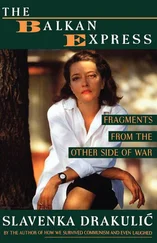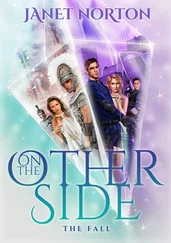He was a bulky man, never to be seen without a yellow woolly bobble hat, which sat, jammed on his black head, atop his six-feet-plus frame, like a baby’s bonnet. He had become a popular figure around the hospital: his disposition was as benign as a baby’s and he had only one enemy, Dr Mackie, who was my enemy too.
Mackie disapproved of the informality of my association with Lennie and disliked the way I worked in general with my patients. And Lennie, as is the way with many psychotics, without any tangible information to go on, had picked this up. It was ironic, because it was drugs, more than words, or kindness, which had helped him in the end.
But now I heard Lennie’s usually deep voice risen to a squeaky pitch and hurried down the corridor to find him upbraiding Mackie who was standing in the hallway looking down at his feet.
‘You dumb fucker,’ Lennie was saying. ‘That’s my clean floor you’ve trod your fuckin’ feet over! Get your fuckin’ act together, man!’
From Mackie’s reddening face I could tell he was about to round on Lennie whose arm I now grasped, sternly saying, ‘Stow it, Lennie. Dr Mackie didn’t mean to muddy your floor. Apologise to him, please.’
I don’t know why this public schoolboy style of address came to me when dealing with Lennie, but he responded to it. He quietened down, muttered a sullen ‘Sorry, doc’, and resumed his manic mopping of the hall floor.
I walked through the grounds to the main building conversing politely, and pointlessly, with a flustered Mackie. I knew he wouldn’t easily forgive my witnessing his humiliation at the hands of my protégé.
Luckily, we met Maguire at the entrance so I had an excuse to get away.
‘Good,’ I said, ‘I wanted to catch you. Mrs Cruikshank. How d’you find her?’
‘Always the same. Quiet as a mouse. No bother.’
‘Do you like her?’
‘What’s to like? Haven’t seen enough of her yet.’
‘Well, keep me posted,’ I said. ‘You know how I rate the Maguire nose. And by the way, we can stop trying to push medication on her. She’s safe enough under your beady eye, no need to force things.’
I had to go cautiously, especially with a suicide case, though in those days we had more leeway. God knows how the poor bastards who work in the NHS cope now. But my sixth sense suggested that, her effort to escape from some intolerable anguish having failed her, my patient was less likely to try that solution a second time.
AFTER JONNY DIED, UP TO THE TIME WHEN I FINISHED AT university, I dreamed of him regularly, so that I now cannot swear which of my recollections are real-life memories and which remnants of the dreams. Nor can I judge how far my love of reading was a consequence of having lost my brother, but from as far back as I can recall I have always found solace in immersing myself in others’ lives, and worlds. It was therefore natural that my first degree should be in English literature. However, when I decided to go on to medical school, although I dreamed still, the dreams about Jonny seemed to stop.
I missed them—as I had missed him. But I retained the memory of them and in one, which had seemed to recur, he would say, ‘Eat this, go on!’ and on a slender silver spoon was something I expected to be Milo’s ice cream.
Milo’s was the first soft ice cream I ever tasted and it was a treat Jonny and I used to clamour for when we were out shopping with our mother on the Chiswick High Road. In those days Chiswick had a Lyons, where we ate buttered teacakes, and a draper’s shop called Goodbands, where our mother bought buttons for our shirts and thin apricot satin ribbon for her petticoat straps. And it also boasted an up-to-the-minute ice cream bar. In the dream, I would shut my eyes and open my mouth and Jonny would carefully place something on my tongue, and I knew, though I could never recapture the taste on waking, that it tasted remarkable: better than anything in life.
At the time, Olivia and I lived in a flat in one of Brighton’s Regency squares and on the days I worked at St Christopher’s I sometimes took my exercise by walking to and from the hospital. Walking home that evening, this dream came back to me. I knew it was death’s allure I had tasted from Jonny’s cold spoon and I wondered how it had tasted to Elizabeth Cruikshank.
We were due for dinner later at the home of a colleague, Denis Powell. On the whole, I tried to avoid social events during the working week, but the Powells hardly counted and nor did Dan and Barbara Buirski who were invited too.
Olivia was in the bath when I let myself in and she called out to come and find her. At forty-two she was still a pretty sight, and naked, and wet, and without make-up and in her shower cap, she looked about sixteen. I kissed her shoulder and went to pour us both a drink and came back and sat on the lavatory seat and chatted to her about her day. We hardly ever discussed mine.
Olivia and I were a mystery to me. We had next to nothing in common and there were many occasions when with good conscience I could have finished with her during our erratic courtship. In the end, I was always pulled back by something I could never quite put my finger on. It wasn’t simply sex, though sex was part of it. I seemed unable to do without her, and yet we were never a fit.
It was a puzzlement, but I knew this much: the hook was inside me, not in her. She was—well, she was Olivia. Perhaps it was that she was so unequivocally herself that drew me to her. She was substantial, she was on the side of life, especially when that life was hers.
‘No kids,’ she said, when I asked her to marry me. ‘I’ll marry you but I don’t want any brats.’
‘Fine,’ I said. Perhaps because of Jonny I wasn’t sure I wanted any either.
In fact, she did fall pregnant and, after some debate, in which I took a pretty passive position—excusing myself with the alibi that it was for the woman to make the final decision—she had an abortion. Our sex life wasn’t terrific afterwards. I suppose I thought it was the result of the termination, and assumed that eventually things would resume their previous pitch. They never did. And I never liked to enquire why. It seemed a pity, because it was one of the things which had been good between us.
But when we weren’t sniping at each other, or more often she at me, we could be affectionate and sipping my whisky I looked at her naked shoulders appreciatively in the bath.
‘Shall I soap your back?’
‘Would you, darling?’
‘It would be a pleasure,’ I said, and meant it. Olivia would have made a good artist’s model. She had a long back and it was worth soaping.
It was worth seeing her dress too and she scolded me a little, but not unpleasantly, for stopping to watch her put on her stockings. She had nice legs and good taste in shoes.
‘People will think I’m a foot fetishist,’ I complained once when she came back with yet another pair.
‘Perhaps you are. Shrinks are always cagey about their own perversions. I wonder what yours really are?’
I wondered too. Perhaps a trace of masochism. Certainly if there was any masochism at play it was not in Olivia.
I was changed and wearing my silk and wool tweed jacket long before she was ready and I waited while she did her face and sprayed herself with scent and changed her shoes a few times. She was more gregarious than me and liked dinner parties, and this evening she was in an unusually cheerful temper.
Driving to the Powells’, she remained in a friendly mood which had the effect of relaxing me. It bothered me that she was able to alter the atmosphere with one brief phrase, or word, and that in my domestic life I had fallen into a more or less permanently propitiatory position. It might have been masochism or it might have been the desire for a quiet life. The desire for a quiet life can be a dangerous ally, I’m afraid.
Читать дальше












